From «impostor syndrome» to self-worth: advice from a psychologist to advocates

Advocates often work at the limits of their capabilities, but do not always feel satisfied with what they have achieved. Information overload, constant comparison with others on social media, and «impostor syndrome» devalue even obvious achievements.
How can you learn to notice your own progress and develop a healthy attitude toward success? Psychologist and gestalt therapist Yulia Kudelia provided answers to these questions. During a webinar hosted by the Ukrainian National Bar Association (UNBA) and supported by the International Bar Association, she presented scientific approaches and practical techniques for self-support.
According to the WHO, 85% of people worldwide have low self-esteem, and 62% of professionals regularly experience «impostor syndrome». According to the speaker, even successful professionals often live with the feeling that they are «out of place» and fear that those around them will expose their alleged incompetence. Added to this is the constant flow of information and social networks that fuel comparisons with others. As a result, people do not have time to reflect on their day and lose the ability to notice their own steps forward.
The problem is compounded by the blurred boundaries between work and personal life. Remote work and constant «productivity» even during leisure time mean that the brain does not have space for post-contact — a state when the experience of the day is assimilated and we can experience feelings of satisfaction or pride. It is in post-contact that we have a chance to truly feel our own successes.
Therefore, Y. Kudelia emphasized, it is important to distinguish between the concepts of «self-esteem» and «self-worth». The former is based on comparison with others and constant competition. The latter is based on an internal sense of one's own value without reference to external standards. It is the development of self-worth that is associated with a sense of security, the ability to cooperate, and the maintenance of inner stability.
The psychologist explained this difference through the concept of the three brain systems proposed by psychologist Paul Gilbert: the threat system, the drive system, and the comfort system. When we evaluate ourselves solely through the prism of success or failure, the threat system is activated, bringing anxiety, shame, and self-criticism. On the other hand, in a state of calm and self-care, a sense of self-worth emerges, allowing us to see our development without constant pressure.
In the second part of the webinar, the expert gave practical advice on how to learn to notice your own successes:
- Record small victories. At the end of the day, write down 2-3 things that went well. It could be a completed work stage, a timely break, or just a warm conversation.
- Praise yourself for your efforts, not just the result. As Carol Dweck's experiments on «growth mindset» have shown, praise for effort motivates more than praise for talent. The same works in internal dialogue.
- Shift your focus from «must» to «can». Mistakes are experiences, not failures. This approach allows you to maintain your drive and avoid falling into stress.
- Practice gratitude. Write down what you are grateful for to yourself, other people, or circumstances. Studies show that even two weeks of practicing gratitude reduces burnout and improves sleep.
- Create a «self-care framework». This is a set of simple rituals and rules: regular sleep, nutrition, balance between work and rest, maintaining relationships. Such a «framework» can be compared to a mother's care for her child.
The speaker also mentioned the metaphor of «green pasture». If mistakes in school were usually marked with a red pen, then green is a way to record successes. Y. Kudelia called for introducing this habit into your diary or internal dialogue: for every self-criticism, find a reason for praise.
In conclusion, the psychologist emphasized that success is not only the result achieved, but also the daily practice of caring for oneself. It is this practice that provides inner stability in times of uncertainty and allows advocates to combine professional development with psychological well-being.
Popular news
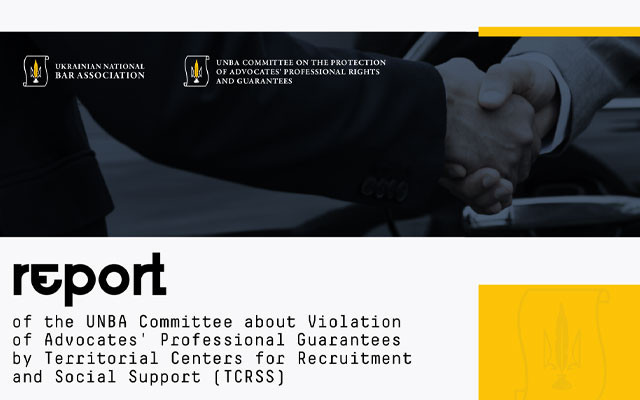
Guarantees of the practice of law
The UNBA presented a report on violations of advocates' rights in the TCC
The Committee for the protection of advocate's rights and guarantees of legal practice of the UNBA has prepared a consolidated report on violations of advocate's professional rights and guarantees of legal practice by territorial recruitment and social support centers for the period from 2022 to the first half of 2025.

Guarantees of the practice of law
L. Izovitova: today advocacy maintains its independence and fights for guarantees for the profession
The Ukrainian advocacy remains an independent, constitutionally recognized institution of justice, which, in the conditions of war, has not only retained its subjectivity, but also consistently fights for guarantees to protect the profession.
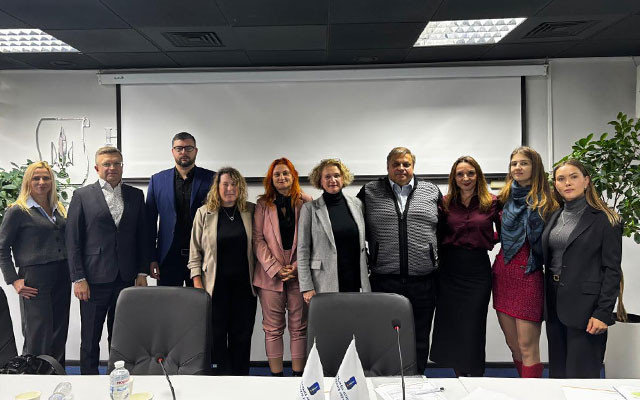
Discussion
Urban Planning Code: what should the new rules for rebuilding Ukraine be?
Does Ukraine need separate codification in the field of urban planning, which model of law to choose, and how to ensure a balance between the interests of the state, communities, businesses, and citizens in the context of post-war reconstruction?
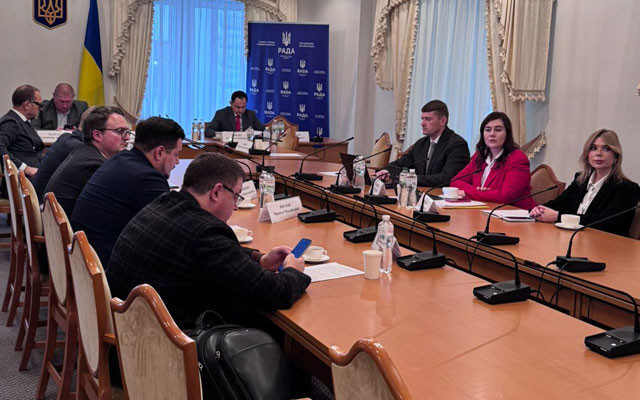
Guarantees of the practice of law
The Verkhovna Rada took another step towards ratifying the Convention on the protection of the profession of advocate
On November 5, the Verkhovna Rada held a working meeting dedicated to the translation of the Council of Europe Convention on the protection of the profession of advocate for its subsequent signing and ratification. The issue was initiated by the Ministry of Foreign Affairs, which drew attention to the key term «lawyer» in the international treaty.
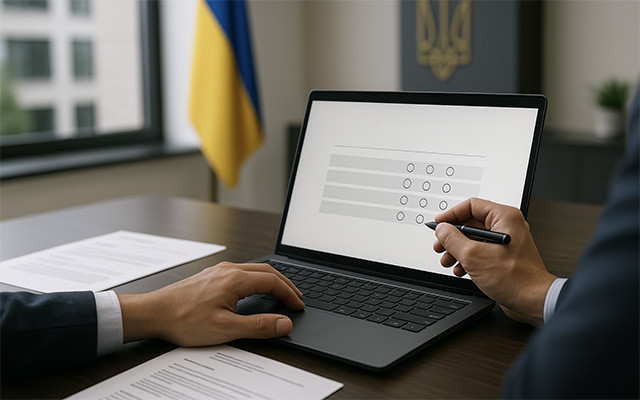
Interaction
NACB is looking for corruption risks in its activities. Advocates are asked to help
The National Anti-Corruption Bureau of Ukraine has launched a survey aimed at gathering information to identify corruption risks in the activities of the National Bureau and prepare an Anti-Corruption Program for 2026–2028.
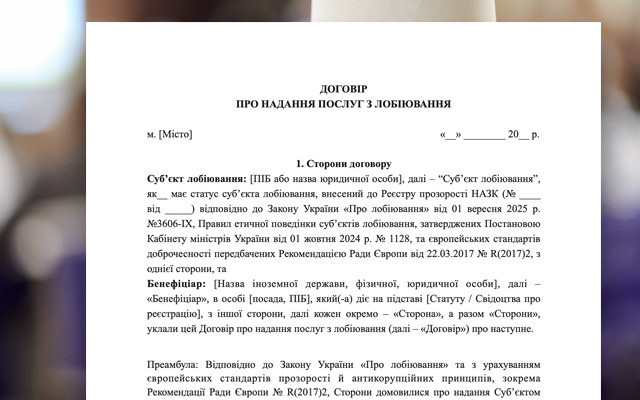
Interaction
Agreement on the provision of lobbying services: a template for advocates has been developed by the UNBA
The Ukrainian National Bar Association has prepared a model agreement for the provision of lobbying services that complies with the requirements of the relevant law and takes into account the specific features of such activities carried out by persons providing legal assistance.
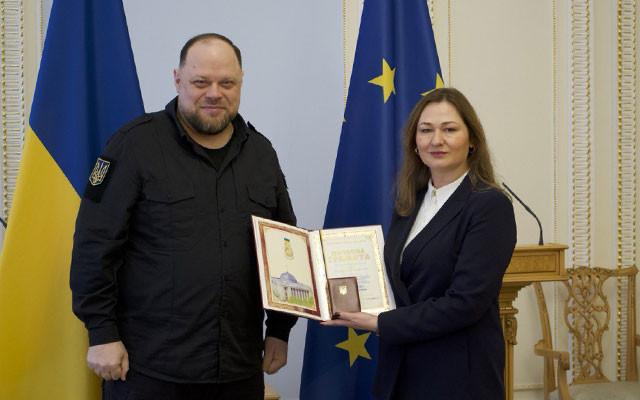
Greetings
Nana Bakayanova awarded with the Certificate of honor of the Verkhovna Rada of Ukraine
Nana Bakayanova, head of the Department of judicial, law enforcement and advocacy organizations at the Odessa Law Academy and secretary of the disciplinary chamber of the Odessa Region Qualification and Disciplinary Commission, received a Certificate of honor from the Verkhovna Rada of Ukraine.
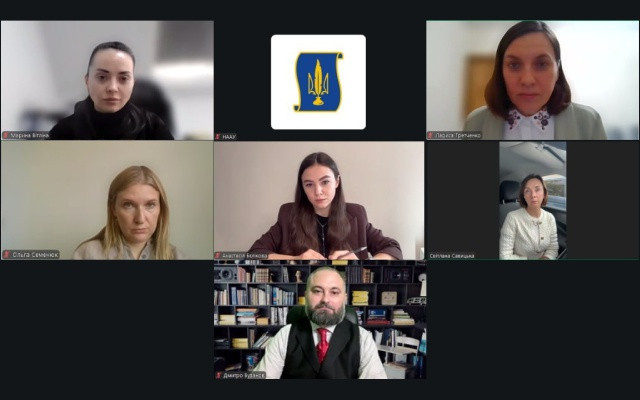
Discussion
Law and feelings: advocates explore contemporary challenges in family law
Marriage and divorce are not only legal procedures, but also social phenomena that require a responsible approach. The UNBA Committee on family law organized and held a professional discussion on the topic «Conscious» marriage and «prudent» divorce: challenges, risks, consequences».
Publications

Censor.net Protecting advocates – protecting justice: addressing concerns about the new law

Ihor Kolesnykov A BRIEF SUMMARY REGARDING THE APPLICATION OF THE ORDER ON EXTENDED CONFISCATION IN LATVIA REGARDING FINANCIAL ASSETS OF…

Valentyn Gvozdiy WORKING IN A WAR ZONE

Lydia Izovitova Formula of perfection

Sergiy Vylkov Our judicial system is so built that courts do not trust advocates

Iryna Vasylyk Advocacy in the proclamation of Independence of Ukraine

Oleksandr DULSKY When we cross the border of the Supreme Anti-Corruption Court, we get into another department of the National Anti-Corruption…

Vadym Krasnyk The UNBA will work, and all obstacles and restrictions are only temporary inconveniences
